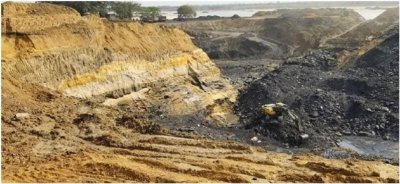
New Delhi, July 2 (IANS) The Coal Ministry is set to launch RECLAIM – a community engagement and development framework for mine closures this week, with the aim of improving both landscapes and local livelihoods, according to an official statement issued on Wednesday.
The framework, which will be launched by Union Minister of Coal and Mines G. Kishan Reddy on Friday, constitutes a key step toward ensuring a just and sustainable transition for communities that have developed alongside mining operations over decades.
The Coal Controller Organisation, under the Ministry of Coal, in partnership with the Heartfulness Institute, has developed this comprehensive Community Development Framework, designed specifically for mine closures.
The framework – referred to as RECLAIM – serves as a structured guide for inclusive community engagement and development throughout the mine closure and post-closure phases. It offers a practical, step-by-step approach to institutionalising community participation in the transition process, the statement said.
The framework is supported by a suite of actionable tools, templates, and field-tested methodologies tailored to the Indian context. Special emphasis is placed on gender inclusivity, the representation of vulnerable groups, and alignment with Panchayati Raj Institutions, ensuring that the transition is equitable and locally relevant.
Ultimately, the RECLAIM Framework aspires to facilitate a seamless and resilient transition for mining communities – grounded in trust, ecological restoration, and long-term socio-economic well-being, the statement added.
Meanwhile, the government is also introducing more stringent guidelines for fostering a sustainable approach to coal mining that include mandatory measures to preserve the environment.
The new guidelines emphasise responsible mining practices that support industry growth while prioritising ecosystem preservation. The key elements include the mandatory inclusion of restoration, remediation, and regeneration measures in mining plans to ensure sustainable natural resource management. These measures aim to minimise environmental impacts, address community concerns, and promote continuous improvement in water quality monitoring.
Public sector coal companies have also made significant strides in environmental sustainability through the successful implementation of the Accredited Compensatory Afforestation guidelines issued by the Ministry of Environment, Forest and Climate Change for increasing forest cover, thereby contributing to national environmental goals and earning valuable carbon credits.
–IANS
sps/vd



